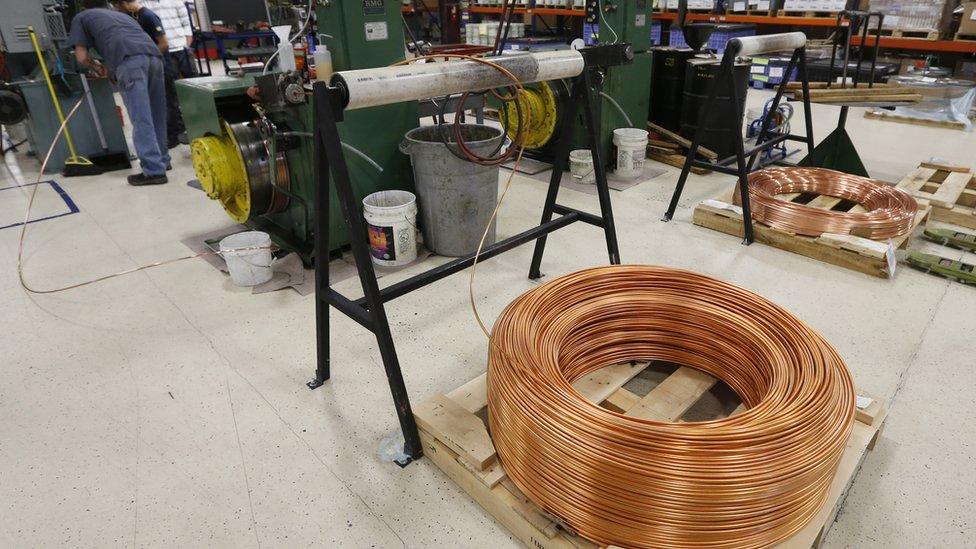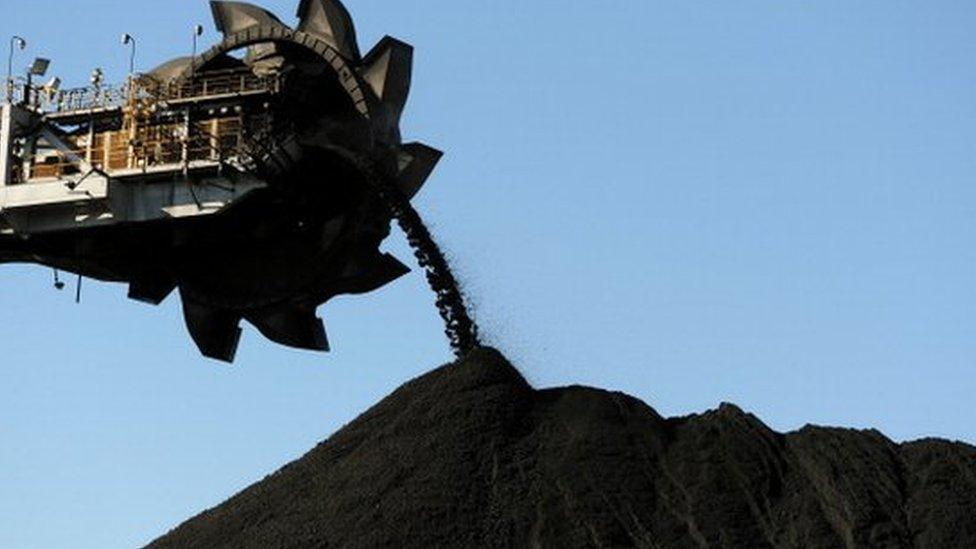Commodities slump again - here's why you should care
- Published

Copper prices are often seen as a gauge of the world's economic health because of its use in industrial production
It's becoming a familiar story.
Fed officials say - but not particularly clearly - something that spooks the markets, no one really knows when US interest rates will rise, but everyone thinks they will very soon, and then commodities tumble, which in turn drags down Asian stock markets.
It feels like we go through this every couple of weeks. But even if you're not invested in the markets, here are three reasons why you should care about falling commodity prices and what it means for global growth.
Demand is falling
Copper prices are down by more than a fifth this year.
The metal is used in everything from homes to factories - so it's a really good gauge of overall global demand.
China is the world's biggest consumer of copper and other raw materials, because it just needs so much of it to power its massive economy. But China is facing the slowest growth in a quarter of a century - so it's not surprising we're seeing copper slump.
There's too much around
Oil inventories are at their highest level in at least a decade, because countries that produce crude drilled more out of the ground this year, adding to global production, according to Opec.
There's even more oil around than there was in 2009, right after the global financial crisis.
As we go into the winter season, Opec says the demand for oil could go up - but the reason there's so much oil in the markets is because no one anticipated that global demand would slow as much as it has.

Oil prices have dropped 10% in November as stockpiles climb
All that glitters is not gold
Gold prices are at five-year lows, which is unusual - because in a period of slower global growth, gold is one commodity that usually does well, as investors look to keep their money safe.
But current gold prices are reflecting the fears that investors have for the future - the market is expecting rates in the US to rise - which means the US dollar will strengthen as more investors look for higher returns there. And that's bad for gold. (Although having said that, physical demand from China and India remains strong for the precious metal.)
So what does this tell us?
Investors are nervous about slowing global growth, but that should come as no surprise.
The commodities boom over the last decade has been driven by China's spectacular once-in-a-lifetime economic rise. Even if other countries in the region (India, Indonesia, Vietnam, Pakistan, Myanmar) see demand pick up for commodities, it is unlikely to be at the scale we saw in China - no one's close to being big enough.
So as China goes through what's being called the "new normal", it's likely that commodity producers are going to have to accept the same fate for themselves too.
- Published13 November 2015

- Published12 November 2015
